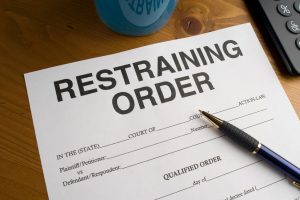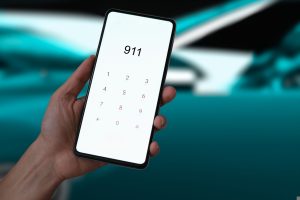If you’ve just been served with a temporary injunction in Broward County, you’re probably feeling a mixture of shock, anger, confusion, and fear — and that’s completely understandable. Being told you may have to leave your own home, that you can’t contact someone you care about, or that a judge made a serious legal decision about your life without you even being in the room is disorienting. You are not alone, and you are not without rights.
As a Fort Lauderdale defense attorney who has represented countless clients in the injunction process, I want to walk you through exactly what is happening, what the critical 15-day window means for you, and what you absolutely must — and must not — do right now.
What Is a Florida Restraining Order (Injunction for Protection)?
In Florida, what most people call a “restraining order” is formally known as an Injunction for Protection. These are civil orders, but make no mistake: violating one is a criminal offense under Florida law.
Florida recognizes several types of injunctions for protection, governed primarily by Chapter 741, Florida Statutes (domestic violence) and Chapter 784, Florida Statutes (repeat violence, dating violence, sexual violence, and stalking). The most common type encountered in Broward County is the Domestic Violence Injunction, defined under § 741.30, Fla. Stat.
When a petitioner (the person requesting the order) files a petition, a judge reviews it ex parte — meaning without you present — and decides whether to issue a Temporary Injunction. That decision can be made in minutes, based entirely on the petitioner’s account of events.
The 15-Day Window: Understanding the Timeline That Will Shape Your Future
Here is where things get critically important.
Under § 741.30(5)(c), Fla. Stat., when a court issues a temporary injunction, it must schedule a full hearing within 15 days. This hearing is your first real opportunity to appear before a judge, present your side of the story, challenge the petitioner’s allegations, and argue against the entry of a Final Injunction — which can last indefinitely.
This 15-day window is not a formality. It is the most important legal moment you will face in this process.
If you do nothing — if you fail to appear, fail to prepare, or fail to retain a Fort Lauderdale defense attorney — the court can and very likely will enter a permanent injunction against you by default. That order can:
- Permanently bar you from your own home
- Prohibit you from contacting your children
- Prevent you from owning or possessing firearms under both Florida and federal law (18 U.S.C. § 922(g)(8))
- Affect your employment, professional licensing, and housing applications
- Follow you on background checks for the rest of your life
Can They Really Kick Me Out of My Own Home?
Yes — at least temporarily, and potentially permanently if you don’t act.
Under § 741.30(6)(a)(2), Fla. Stat., a court issuing a temporary injunction may order the respondent (that’s you) to vacate the shared residence, regardless of who owns or leases the property. This is one of the most jarring aspects of the law for clients to accept. Even if your name is on the mortgage or the lease, the temporary injunction can require you to leave immediately.
The court can also award the petitioner temporary exclusive use and possession of the home, make temporary child custody determinations, and issue other emergency relief — all before you’ve had a chance to say a single word.
This is why what happens at that 15-day hearing is so consequential.
Your Rights as a Respondent
Despite how powerless the initial service of a temporary injunction can make you feel, you have important legal rights throughout this process: Continue reading
 Fort Lauderdale Criminal Attorney Blog
Fort Lauderdale Criminal Attorney Blog














